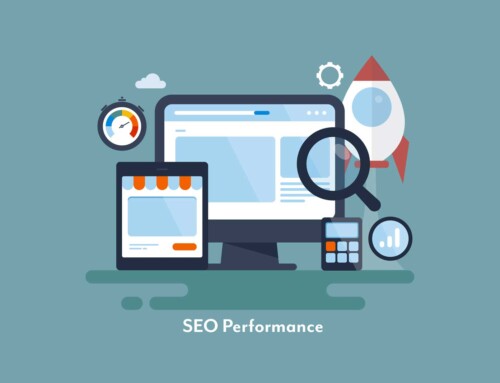The way to your own blog
The way to your own blog – why you should blog too!
Wondering why more and more companies are embedding a blog on their company’s website? We will show you why a blog should also be included on the company website. We will also show you how to set up a blog or integrate it into an existing website.
Reasons to blog
receive attention
By including a blog on your website, you can offer website visitors real added value. Regularly creating interesting and varied content will keep visitors coming back to your site and attract new visitors to you.
But not only the attention of the visitors is an advantage of the integration, the integration of a blog also has advantages in relation to search engines. Many companies have a static website. This means that the website is rarely updated and the presentation of the product or service is only moderately successful. However, search engines like Google prefer websites that are constantly updated. Because of this, the ranking of static websites is getting worse and worse. Filling your website with new content keeps it interesting for visitors and search engines. With a blog, you can easily provide fresh content on your website.
With your knowledge, you can gain the trust of your customers. Write on topics related to the products and services you offer. Because only those who have an idea of a topic can write about it regularly. Many customers have this assumption, but many companies get support from SEO experts. It is often difficult to find time to create content alongside day-to-day business.
When creating your blog content, you should always keep your target audience in mind. Adapt your writing style to the target group. Because with a friendly manner you can convey informative content at eye level.
But not only the visitors of their website benefit from the blog. Interesting background information or amusing stories from everyday business life are often shared on social media. This also affects the Google ranking. Websites with frequently shared posts are rewarded with a better ranking by the search engine.
You too can use social media. Share the latest post via your company profile on social media to increase awareness.
Offer added value!
Once you have created your website, the most important content such as contact details, imprint and information about products and services is also given. Once visitors have visited your website, a renewed visit has no added value. With a blog you create an incentive for users to visit your website again. With informative texts and interesting stories, you offer users added value.
Stay relevant!
Google prefers websites that are constantly updated and are always up to date. In order to fully convince Google of yourself, you should use the right keywords. Keywords are the words that the user enters into Google to find the right product or service. With so-called long-tail keywords (multi-part keywords), e.g. B. “buy fresh flowers in Frankfurt” instead of “flowers”, the search intention of the user is best reflected. Your Google ranking will also increase if your keywords stand out from the competition.
Create the opportunity for interaction!
A blog gives you the opportunity to interact with your customers. By posting an exciting or funny post, you not only get readers to think, but also to leave a comment under the post. Be sure to respond to these comments. Through this interaction with your readers, you receive direct feedback and can thus continue to improve your company.
Build trust!
Backlinks show trust in your business. Linking also gives Google more trust in you. This in turn has a positive effect on your Google ranking. But caution is also required here. Because only links from websites that work in the same industry as you have this positive effect. Links from non-industry websites can damage your company website in the long run. For this reason, you should not accept an offer to buy backlinks.
Here’s how to start your blog!
The reasons given motivated you to start your own blog. But you are wondering where to start? There are different ways to start a blog.
One possibility is the website with an integrated blog function. This function is already available in most programs for creating a website or is easily possible with a plugin. The advantage of this option is that everything is combined in one system. However, security gaps can arise when different people access the backend.
Another possibility is the subdomain. The blog can be set up via a subdomain using your own CMS. WordPress is the most commonly used for this. WordPress can be combined with other systems without any problems. Although this option offers more flexibility and security, two systems must be kept up to date with updates.
The third way to run a blog is a cloud-based solution. Hosting providers offer to take care of the technical components for a monthly fee, so that you can concentrate completely on the content of your blog. It must be noted that the features are limited with a cloud-based blog.
Start your own blog!
If you are in the process of building your business website, it’s a good time to start your own blog. To make it easier for you to start your own blog, we have summarized the most important points for you.
→ Choice of platform
In order to start your own blog, you need to choose a suitable platform. There are some free platforms like Jimdo, Wix and Blogger.com. You basically can’t go wrong with these platforms.
However, if you want to incorporate the blog into your marketing strategy, you should use your own domain with a WordPress installation. Although the training takes more time and effort, you can then design and expand the blog according to your ideas.
→ Appropriate topic
When choosing the topic for your blog, you are not as free as you would like. Because while cake recipes are appropriate on a bakery’s website, those on a hairdresser’s website are inappropriate. So the topic of your blog should fit the industry you are in.
Before you start your blog, you should ask yourself whether you can imagine dealing with this topic regularly and creating texts and videos. If you can answer this question with yes, then you will have many friends when creating the posts and will notice a positive effect on your sales.
→ Hosting provider
Ready to start your blog? But in order for your blog to be found on the Internet, you need a domain and the associated domain hosting. However, caution is advised with providers such as Strato, Ionos and HostEurope. On the one hand there are the low prices, but on the other hand there are often technical problems such as long loading times and poor customer service.
→ domain name
The name of the blog is recommended as the domain name if the website is used exclusively for this. For you as a company, the domain should reflect the company name. If this has already been assigned, industry-specific terms can be added. The domain should not be longer than 20 characters and should not contain any umlauts.
→ WordPress installation
You should make sure that you download the latest version of WordPress. Once done, connect to the FTP client. You will receive the access data for this from your web host. Copy and paste all WordPress files into the root directory. Once the process is complete, enter the domain name in the browser. Now a small window with the button “Create configuration page” should open. The installation starts with a click on the button. In the next window, the information about the MySQL database must be entered to complete the installation. To complete the WordPress setup, you need to set your WordPress credentials.
→ Design and configuration
Now that you’ve got WordPress set up, you’re ready to start designing your blog. First you should delete the examples and default plugins. After setting up the basic plugins, you should switch permalinks to post name. In the next step, you should determine a suitable design as well as page and subtitles. You should also add a favicon and your logo. The next steps are setting up the navigation bar, installing the analyzer and registering with Google Search Console. After data protection has also been set up, WordPress should be secured.
→ contribution
If you have successfully completed all the previous steps, you can write and publish your first blog post. So that your posts are also classified as relevant by Google, you should deal with the topic of SEO and keyword research.




